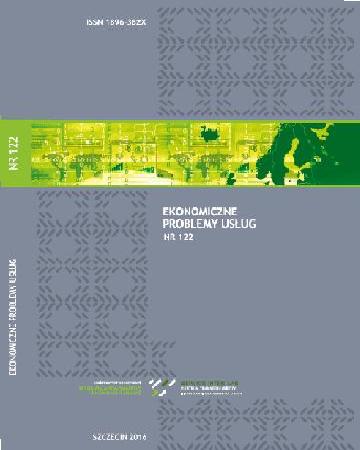
ISSN: 1896-382X
eISSN: 2353-2866
OAI
DOI: 10.18276/epu.2017.126/2-09



Issue archive /
nr 126 (2) 2017
Agregatory wiadomości - remedium na przeładowanie informacyjne?
(News aggregators - a remedy for the information overload?)
| Authors: |
Andrzej
Kobyliński
Szkoła Główna Handlowa w Warszawie Instytut Informatyki i Gospodarki Cyfrowej Kolegium Analiz Ekonomicznych SGH |
| Keywords: | news aggregator information overloading |
| Data publikacji całości: | 2017 |
| Page range: | 10 (83-92) |
| Klasyfikacja JEL: | C88 D83 L86 |
Abstract
Internet, which is a tremendous resource of information is growing constantly. This leads to information overload, when people are not able to control the excess of available content. One of the solutions to the problem are news aggregators - tools that filter news from multiple web sources and present selected information in one place. The selection process is carried out by journalists supported by the machine learning algorithms, which leads to personalize content presented to the particular customers.
Download file
Article file
Bibliography
| 1. | Apple News. Pobrano z: http://www.apple.com/news/ (23.01.2017). |
| 2. | CBOS (2015). Internauci, 90. Pobrano z: http://www.cbos.pl/SPISKOM.POL/2015/K_090_ 15.PDF (21.01.2017). |
| 3. | Cisco (2016). The Zettabyte Era: Trends and Analysis (white paper) (2.06.2016). Pobrano z: http://www.cisco.com/c/en/us/solutions/collateral/service-provider/visual-networking-index-vni/vni-hyperconnectivity-wp.pdf (19.01.2017). |
| 4. | Deep Web Sites. Pobrano z: https://www.deepweb-sites.com/how-big-is-the-deep-web/. |
| 5. | Dewey, C. (2015). If you could print out the whole Internet, how many pages would it be? The Washington Post, 18. 05.2015. Pobrano z: https://www.washingtonpost.com/news/ the-intersect/wp/2015/05/18/if-you-could-print-out-the-whole-intemet-how-many-pages-would-it-be/?utm _term=.e5945232822f (19.01.2017). |
| 6. | Digg, digg.com (23. O 1.2017). |
| 7. | Fazlagić, J.A. (2010). Zjawisko „nadmiaru informacji" a współczesna edukacja. E-mentor, 4 (36). Forum. Pobrano z: http://www.forumdwutygodnik.pl/ (22.01.2017). |
| 8. | Gemius (2015). Polski internauta w sieci spędza średnio 36 dni rocznie (17.07.2015). Pobrano |
| 9. | z: https://www.gemius.pl/wszystkie-artykuly-aktualnosci/polski-internauta-w-sieci-spe |
| 10. | dza-srednio-36-dni-rocznie.html (21.01.2017). |
| 11. | Google News. Pobrano z: https://news.google.pl/ (23.01.2017). Internet Live Stats. Pobrano z: http://www.internetlivestats.com/. |
| 12. | Keen, A (2007). Kult amatora. Jak internet niszczy kulturę. Warszawa: Wydawnictwa Akade¬mickie i Profesjonalne. |
| 13. | Kunder M. de. The size of the World Wide Web (The Internet). Pobrano z: http://www.world widewebsize.com/ (19.01.2017). |
| 14. | Lyman, P„ Varian, H.R. (2000). How Much Information?. Berkley: University of California Pobrano z: http://www2.sims.berkeley.edu/research/projects/how-much-info/how-much¬info.pdf (18.01.2017). |
| 15. | MSN News. Pobrano z: https://www.msn.com/en-us/news (23.01.2017). |
| 16. | Netcraft. How many active sites are there? Pobrano z: https://www.netcraft.com/active-sites/ (19.01.2017). |
| 17. | Pagliery, J. (2014). The Deep Web you doniknow about (10.03.2014). Pobrano z: http://money. cnn.com/2014/03/10/technology/deep-web/ (19.01.2017). |
| 18. | Pappas, S. (2016). How Big Is the Internet, Really? (18.03.2016). Pobrano z: http://www.live |
| 19. | science.com/54094-how-big-is-the-internet.html (19.01.2017). |
| 20. | Reader's Digest. Pobrano z: http://www.rd.com/ (22.01.2017). Reddit. Pobrano z: https://www.reddit.com/ (23.01.2017). |
| 21. | Tygodnik Angora. Pobrano z: https://www.angora.corn.pl/ (22.01.2017). |
| 22. | Understanding Information Overload. Pobrano z: http://www.infogineering.net/under standing-information-overload.htm. |
| 23. | Upday. Pobrano z: http://upday.com/pl/ (23.01.2017). |
| 24. | Związek Kontroli Dystrybucji Prasy. Pobrano z: https://www.zkdp.pl/, https://www.tele skop.org. pl/zkdp/index.jsp?p=publicDataNoReg (22.01.2017). |